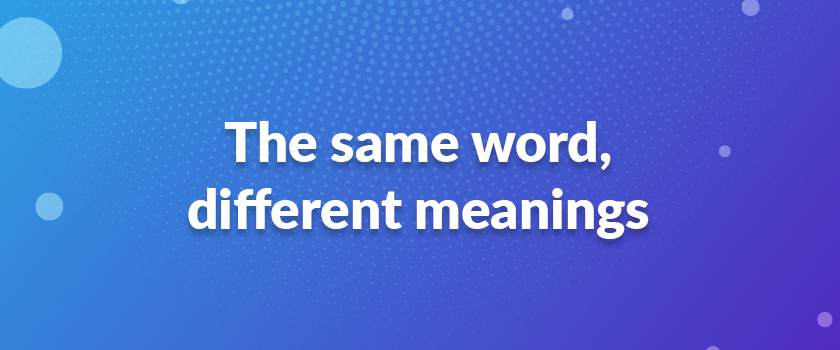The same word may have different meaning due to various contexts. Take some marketing materials for example.
Example 1. We will put this new product in the emerging markets.
Here, “market”: refers to “市场”as this word commonly means.
So this sentence can be translated as: 我们将在新兴市场投放这个新产品。
Example 2. The two big companies control 80% of the market.
Here, “market” refers to “market shares”.
So this sentence can be translated as: 两大公司控制了 80% 的市场份额。
Example 3. She has to sell the house for the current market value.
Here, “market” is an adjective, means “市场的”.
So this sentence can be translated as: 她不得不已现在的市价出售这座房子。
Example 4. The new generation of iPhone4S has been marketed in the US since 14th, October, 2010.
Here, “market” is a verb, could refer to “sell”.
So this sentence can be translated as: 2010 年 10 月,新一代 iPhone4S 手机开始在全美销售。
Example 5. If you’re in the market for a new cell phone, you’ll see that the latest models are very different.
Here, “in the market” means “has the intention to purchase or buy something”.
So this sentence can be translated as: 如果你打算买一台新手机,你会发现最新型号的手机变化非常大。
Example 6. At £150,000 for a purse, he really is pricing himself out of the market.
Here, “out of market” means “要价过高而无人购买”.
So this sentence can be translated as: 他居然一个钱包要价15万英镑,真让人不敢问津。
When we add an “ing” behind “market”, the meaning is of great difference.
For example: We can provide expert advice on production and marketing.
Here, “marketing” means “营销”.
So this sentence can be translated as: 我们能对生产和营销提供专业的建议。
But sometimes, “marketing” does not only refer to “营销”.
We can see the example as follows:
Marketing functions can give you some good advice on this new product.
Here, “marketing function” refer to “市场部同事”.
So this sentence can be translated as: 市场部同事可为您提供有关该产品的良好建议。
There still other meanings. When translating the words, we have to consider its context, and choose a most suitable one, try to avoid translating words by words.







